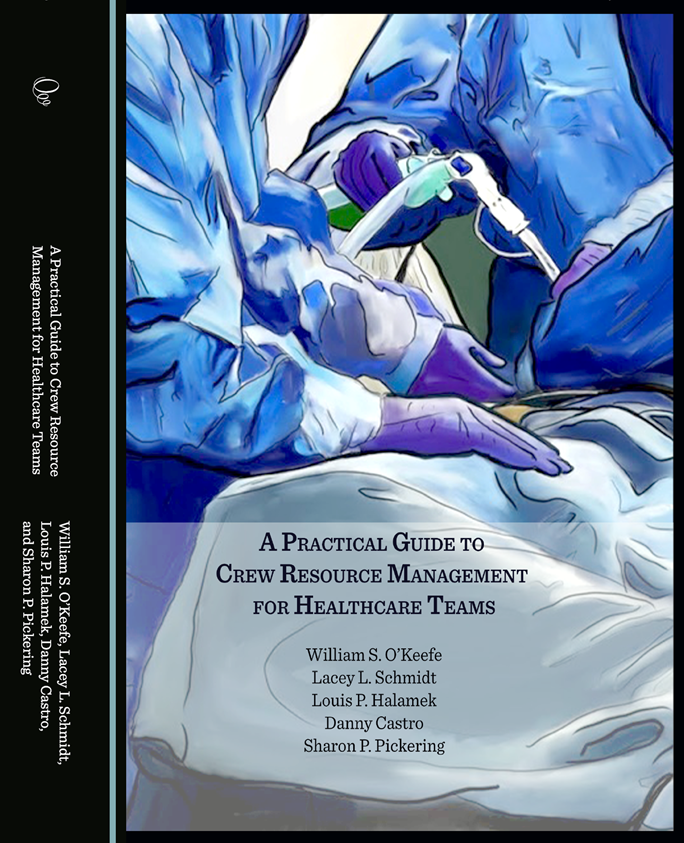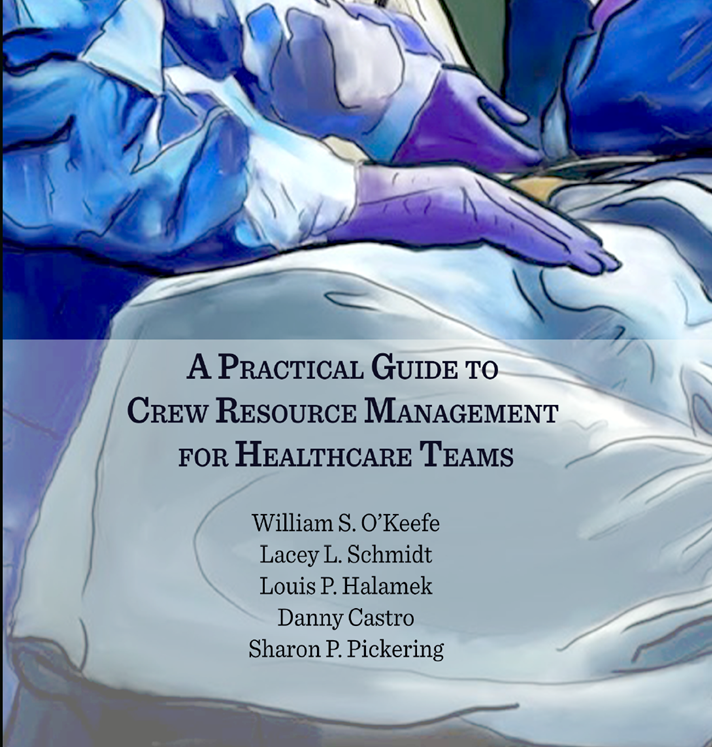
A Practical Guide to Crew Resource Management for Healthcare Teams
by William S. O’Keefe, Lacey L. Schmidt, Louis P. Halamek, Danny Castro, and Sharon P. Pickering
Visit the Cambridge Scholars Publishing Store to buy the book.
This book will help the reader’s team when confronted with complex, error-prone, or ambiguous situations by providing concrete steps in the application of Crew Resource Management (CRM) skills. The reader will learn how to determine the situation, communicate clearly and concisely, feel safe asking questions, be assertive when safety is an issue, and support the team in preventing, avoiding, or mitigating errors and threats to performance. Readers will learn how to develop a CRM plan and briefing, as well as how to debrief actions to constantly improve team performance. Applications of CRM in the healthcare professions are emphasized in the book through dialogue-based examples written by healthcare professionals and based on actual critical scenarios that allow readers to analyze real-time situations and see how to apply evidence-based CRM best practices.
What is Crew Resource Management?
CRM is a way of managing and optimizing team interactions, to improve performance, and positively impact safety that is based on observable behaviors and includes:
- Exchanging Information: determining what information to exchange to whom and when.
- Communicating: how to exchange information.
- Leading and Following: Leading is setting up psychological safety, articulating CRM expectations and then modeling and rewarding those behaviors. Following is inquiring when they do not understand the leader or the situation, and then advocating and even asserting a position when they believe that safety is at risk.
- Mutually Supporting: offering and accepting physical, cognitive, psychological, and emotional support as well as providing feedback on both technical and non-technical behaviors.
Why do Healthcare Teams need CRM?
As a healthcare professional, your team’s top priority is to consistently deliver safe healthcare to every single patient. Every patient has the right to experience the safest care, and, in order to achieve this, you and your team endeavor to perform at your optimum in every situation. However, even with the best of intentions, things still go wrong. Harm to patients through adverse events is not only distressing for them and their families, but it also has a personal impact on healthcare professionals themselves. The healthcare system is a highly dynamic, multifaceted, complex safety-critical profession. As a healthcare professional, you represent a key element within a vast network of interdependent roles and responsibilities. You strive to ensure that things always go right in the areas that you influence. When CRM becomes standard practice, you and your team will behave in a manner that ensures that you are continually competent and responsible for achieving a safe and successful outcome.
Who will this book help?
The focus is to help you, as the professional, to embed a proactive approach to your team interactions. The authors of this guide, cover the theoretical expertise and the applied experience to inform healthcare professionals on how to adopt CRM in practice. The authors include two intensive care physicians who are actively engaged in clinical practice at academic institutions; two research doctorates with broad and deep experience using scientific evidence to develop applied CRM programs for multiple industries; and one highly experienced CRM instructor who has designed and implemented CRM training for NASA astronauts and flight controllers, oil and gas drilling crews, emergency responders, and many other highly specialized teams. Collectively, we explain CRM in practical terms that are both evidence-based and directly applicable to daily healthcare practice. This guide leads you on the path to success through demonstrating how to continually practice CRM, empowering you with skills to inspire change, thereby ensuring that your own accountability for the safe delivery of healthcare is modeled and transferable in order to guide others in your organization.
Why do we care?
As professionals adopting CRM, we have a multitude of factors that impact our performance. While many factors are seemingly out of our control, adopting CRM is our way of working directly within our control. We’ve found that CRM significantly benefits our daily activities, empowers us to provide optimum care, and save lives.
